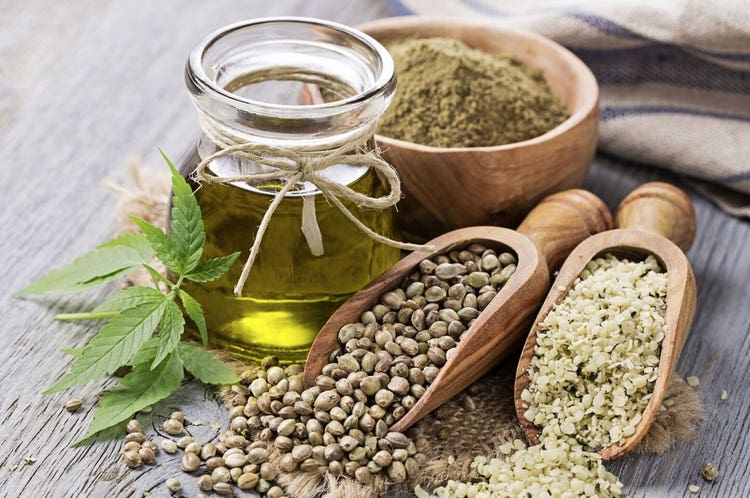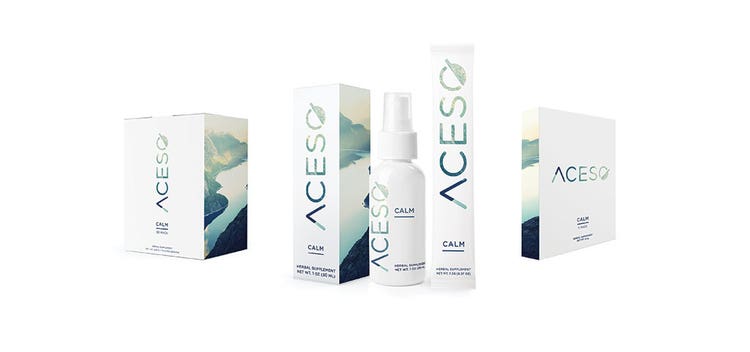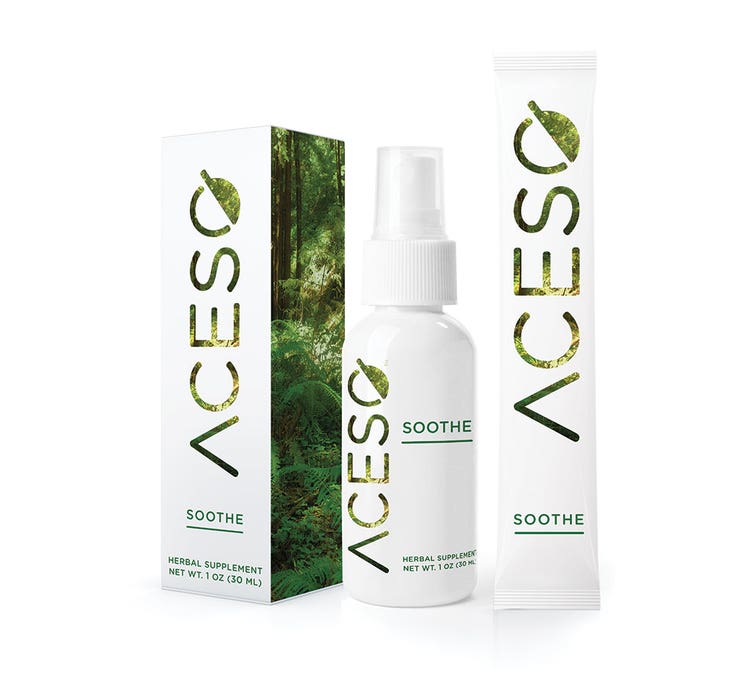Marijuana in Your Medicine Cabinet?

New hemp supplements tout health benefits without the high.
If cannabis isn’t part of your supplement arsenal, it might soon be. And no, not for the reason you might think.
Cannabidiol or CBD, one of marijuana’s main molecules—the one that doesn’t make users high—is turning up in sprays, powders, honey, peanut butter and even luxe chocolates as a tool for stress relief, muscle recovery, energy and overall wellness.
“CBD is a great anti-inflammatory,” says Kurt Forstmann, hemp category director for Dixie Brands, one of the first companies to begin marketing CBD sprays and powders nationwide under the Aceso (Ah-kee-so) brand, so named for the Greek goddess of healing. “And inflammation is behind so many modern diseases,” he says, from heart disease to Parkinson’s to cancer.
Aceso sells several CBD-based powders and sprays online and in fitness studios and chiropractic and naturopathic offices, in addition to dispensaries in states where medical marijuana is legal.
Aceso’s top seller is its Calm formulation, which in addition to CBD extract, contains passionflower, lavender and L-theanine, the calming ingredient from green tea, all of which are supposed to work synergistically with CBD to promote relaxation.

Soothe, another top seller, is a recovery blend that contains known natural anti-inflammatories such as tart cherry, curcumin (the active ingredient in turmeric) and bromelain from pineapple, as well glucosamine to ease sore muscles and joints. CBD, Forstmann says, makes these ingredients more potent pain relievers.

Aceso’s parent, Denver-based Dixie Brands, got its start manufacturing THC-infused edibles for dispensaries in areas where marijuana is legal. It was here that the company noticed more and more customers searching for CBD-heavy strains of pot or CBD alone that could be taken anytime—even at work—for its calming, pain-soothing effect.
CBD, which is derived from industrial-grade hemp, can be shipped over state lines because it contains less than .03 percent tetrahydrocannabinol or THC, the psychoactive or high-producing ingredient in pot. Companies such as Aceso just have to be careful in how they market it, making no promises to treat illness and making sure their formulation dosages are as advertised, lest they run afoul of the U.S. Food and Drug Administration.
A number of global studies have supported CBD’s promise in treating epilepsy, anxiety schizophrenia, heart disease and cancer. But it’s still early days for research in the U.S. because government restrictions have been burdensome for academics studying CBD.
Still, in its first year in business, Aceso has posted sales of more than $1 million, and Forstmann expects the category to boom, as more clinical research is published supporting its benefits.
Already, one British pharmaceutical company has developed two CBD-based drugs, one for the muscle spasms associated with muscular sclerosis and another for epileptic seizures, which will begin the lengthy approval process with the FDA this year.
This kind of herbal medicine is what many see as the future of CBD in the age of Big Pharma.
“Ultimately, this will become a heavily regulated product,” Forstmann says. “We would like to legitimize CBD as real medicine.”
Photo credit: Thinkstock, iStock, egal.